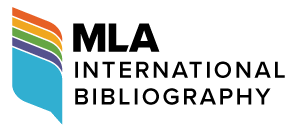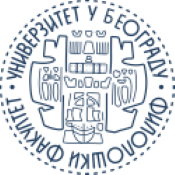Gender Issues in Two Recent Hispanic American Films: 108. Cuchillo de Palo by Renate Costa and Pelo Malo by Mariana Rondón
DOI:
https://doi.org/10.18485/beoiber.2017.1.1.12Abstract
This article proposes an analysis of two recent Hispanic American films: 108. Cuchillo de palo (2010) by Paraguayan director Renate Costa and Pelo malo (2013) by Venezuelan director Mariana Rondón. Starting from the documentary in which family history and collective history converge, a brief review of the anti-homosexual repression of the government of Alfredo Stroessner is presented, before showing how the two works deal with the subject of the identity search of the two protagonists, Rodolfo Costa, the uncle of Renate Costa, and Junior, a nine-year-old boy who dreams of having smooth hair in Mariana Rondón’s film. If some consider the attitude of both characters as «abnormal» because they transgress the heteropatriarchal norms in force in Paraguay and Venezuela, our article states that the two main detractors, Rodolfo Costa’s brother and Junior’s mother, do not completely obey the normative codes of their respective society either. The final section shows that the two films, although they focus on the subject of tolerance, formulate different endings: in contrast to 108. Cuchillo de palo, hope seems absent in Pelo malo.Key words: Hispanic American cinema, homosexuality, gender, transgression, tolerance.References
Acevedo Kanopa, Agustín. «El número mudo». La Diaria (2011). Web. 20 Sep. 2016.
Anónimo. «Entretien avec Mariana Rondón». distrib.pyramidefilms.com (2013). Web. 29 Sep. 2016.
Augsten Szokol, Erwing. 108. Ciento ocho. Asunción: Arandura, 2013. Impreso.
Auzépy, Marie-France. Poils. Paris: Editions de la Table Ronde, 2014. Imprimé.
Auzou, Marie-Christine et Sabine Melchior-Bonnet. Les vies du cheveu. Paris: Gallimard, 2001. Imprimé.
Bromberger, Christian. Trichologiques. Une anthropologie des cheveux et des poils. Paris: Bayard, 2010. Imprimé.
Bustos, Anabella. «Entrevista con Renate Costa». GrupoKane (2010). Web. 20 Sep. 2016.
Carbone, Rocco. «Erratas sexuales. Fallas de género». Nuevo Mundo Mundos Nuevos (2014). Web. 22 Mar. 2016.
—. «Ley genérica entre mujeres y putos: democracia, Stronato y Guerra Guasu». DOC On-line. Revista Digital de Cinema Documentário, Núm. 18 (2015): 359‒376. Web. 15 Sep. 2016.
Castanon Akrami, Brice. «Renouveau du documentaire en Espagne et nouveau réalisme catalan: le Master en Documentaire de création de l’Université Pompeu Fabra (Barcelone)». Thèse de doctorat. Reims: Université de Reims, 2011. Imprimé.
Castanon Akrami, Brice et Emmanuel Le Vagueresse. «108. Cuchillo de palo (2010) de Renate Costa ou comment la transgression des tabous familiaux de la sexualité et du genre raconte une histoire nationale». Sonia Kerfa y Jean-Claude Seguin (ed.), Image et genre. Actes du 8ème Congrès International du GRIMH, Lyon: GRIMH, Université Lumière Lyon 2, 2014: 345‒355. Imprimé.
Castrejón, Eduardo. Los cuarenta y uno: novela crítico-social. Coordinación y estudio crítico de Robert McKee Irwin. México: UNAM, 2010. Impreso.
Costa, Renate. 108. Cuchillo de palo. BQHL Éditions, 2012. DVD.
García Alvarado, José María y Javier Gutiérrez Puebla. Paraguay. Madrid: Anaya, 1988. Impreso.
Godeau, Isar. «Peinando diferencias, bregas de pertenencia: el alisado y el llamado pelo malo». Caribbean Studies, XXX Núm. 1 (2002): 82‒134. Impreso.
Martínez Oliva, Jesús. «Algunos apuntes sobre Cuchillo de palo de Renate Costa. Un ejercicio de memoria de la homofobia y los traumas de la dictadura de Stroessner». SOBRE. Prácticas artísticas y políticas de la edición, Núm. 2 (2016): 47‒66. Web. 15 Sep. 2016.
Messu, Michel. Un ethnologue chez le coiffeur. Paris: Fayard, 2013. Imprimé.
Odoul, Michel et Rémi Portrait. Cheveu, parle-moi de moi. Paris: J’ai lu, 2015. Imprimé.
Riado, Pierre. L’Amérique latine de 1945 à nos jours. Paris: Masson, 1992. Imprimé.
Ribeiro Barreto, Rodrigo. «Desviante enquadrado: o retrato da normalização precoce da masculinidade em Pelo malo». Imagofagia. Revista de la Asociación Argentina de Estudios de Cine y Audiovisual, 11 (2015): 1‒18. Web. 29 Sep. 2016.
Rondón, Mariana. Pelo malo. Pyramide Vidéo, 2014. DVD.
Rudel, Christian. Le Paraguay. Paris: Karthala, 1990. Imprimé.
Sméralda, Juliette. Peau noire, cheveu crépu. L’histoire d’une aliénation. Pointe-à-Pitre: Jasor, 2004. Imprimé.
Tilles, Gérard et Françoise Gründ. Les cheveux. Signe et signifiant, Paris: Springer, 2013. Imprimé.
Anónimo. «Entretien avec Mariana Rondón». distrib.pyramidefilms.com (2013). Web. 29 Sep. 2016.
Augsten Szokol, Erwing. 108. Ciento ocho. Asunción: Arandura, 2013. Impreso.
Auzépy, Marie-France. Poils. Paris: Editions de la Table Ronde, 2014. Imprimé.
Auzou, Marie-Christine et Sabine Melchior-Bonnet. Les vies du cheveu. Paris: Gallimard, 2001. Imprimé.
Bromberger, Christian. Trichologiques. Une anthropologie des cheveux et des poils. Paris: Bayard, 2010. Imprimé.
Bustos, Anabella. «Entrevista con Renate Costa». GrupoKane (2010). Web. 20 Sep. 2016.
Carbone, Rocco. «Erratas sexuales. Fallas de género». Nuevo Mundo Mundos Nuevos (2014). Web. 22 Mar. 2016.
—. «Ley genérica entre mujeres y putos: democracia, Stronato y Guerra Guasu». DOC On-line. Revista Digital de Cinema Documentário, Núm. 18 (2015): 359‒376. Web. 15 Sep. 2016.
Castanon Akrami, Brice. «Renouveau du documentaire en Espagne et nouveau réalisme catalan: le Master en Documentaire de création de l’Université Pompeu Fabra (Barcelone)». Thèse de doctorat. Reims: Université de Reims, 2011. Imprimé.
Castanon Akrami, Brice et Emmanuel Le Vagueresse. «108. Cuchillo de palo (2010) de Renate Costa ou comment la transgression des tabous familiaux de la sexualité et du genre raconte une histoire nationale». Sonia Kerfa y Jean-Claude Seguin (ed.), Image et genre. Actes du 8ème Congrès International du GRIMH, Lyon: GRIMH, Université Lumière Lyon 2, 2014: 345‒355. Imprimé.
Castrejón, Eduardo. Los cuarenta y uno: novela crítico-social. Coordinación y estudio crítico de Robert McKee Irwin. México: UNAM, 2010. Impreso.
Costa, Renate. 108. Cuchillo de palo. BQHL Éditions, 2012. DVD.
García Alvarado, José María y Javier Gutiérrez Puebla. Paraguay. Madrid: Anaya, 1988. Impreso.
Godeau, Isar. «Peinando diferencias, bregas de pertenencia: el alisado y el llamado pelo malo». Caribbean Studies, XXX Núm. 1 (2002): 82‒134. Impreso.
Martínez Oliva, Jesús. «Algunos apuntes sobre Cuchillo de palo de Renate Costa. Un ejercicio de memoria de la homofobia y los traumas de la dictadura de Stroessner». SOBRE. Prácticas artísticas y políticas de la edición, Núm. 2 (2016): 47‒66. Web. 15 Sep. 2016.
Messu, Michel. Un ethnologue chez le coiffeur. Paris: Fayard, 2013. Imprimé.
Odoul, Michel et Rémi Portrait. Cheveu, parle-moi de moi. Paris: J’ai lu, 2015. Imprimé.
Riado, Pierre. L’Amérique latine de 1945 à nos jours. Paris: Masson, 1992. Imprimé.
Ribeiro Barreto, Rodrigo. «Desviante enquadrado: o retrato da normalização precoce da masculinidade em Pelo malo». Imagofagia. Revista de la Asociación Argentina de Estudios de Cine y Audiovisual, 11 (2015): 1‒18. Web. 29 Sep. 2016.
Rondón, Mariana. Pelo malo. Pyramide Vidéo, 2014. DVD.
Rudel, Christian. Le Paraguay. Paris: Karthala, 1990. Imprimé.
Sméralda, Juliette. Peau noire, cheveu crépu. L’histoire d’une aliénation. Pointe-à-Pitre: Jasor, 2004. Imprimé.
Tilles, Gérard et Françoise Gründ. Les cheveux. Signe et signifiant, Paris: Springer, 2013. Imprimé.
Downloads
Published
2017-05-18
How to Cite
Balutet, N. “Gender Issues in Two Recent Hispanic American Films: 108. Cuchillo De Palo by Renate Costa and Pelo Malo by Mariana Rondón”. BEOIBERÍSTICA - Journal of Iberian, Latin American and Comparative Studies (ISSN: 2560-4163 Online), vol. 1, no. 1, May 2017, pp. 181-9, doi:10.18485/beoiber.2017.1.1.12.
Issue
Section
CULTURAL DIALOGUE
License
Authors who publish with this journal agree to the following terms:
- Authors retain copyright and grant the journal right of first publication with the work simultaneously licensed under a Creative Commons Attribution-ShareAlike 4.0 International License that allows others to share the work with an acknowledgement of the work's authorship and initial publication in this journal.
- Authors are able to enter into separate, additional contractual arrangements for the non-exclusive distribution of the journal's published version of the work (e.g., post it to an institutional repository or publish it in a book), with an acknowledgement of its initial publication in this journal.
- Authors are permitted and encouraged to post their work online (e.g., in institutional repositories or on their website) prior to and during the submission process, as it can lead to productive exchanges, as well as earlier and greater citation of published work (See The Effect of Open Access).













